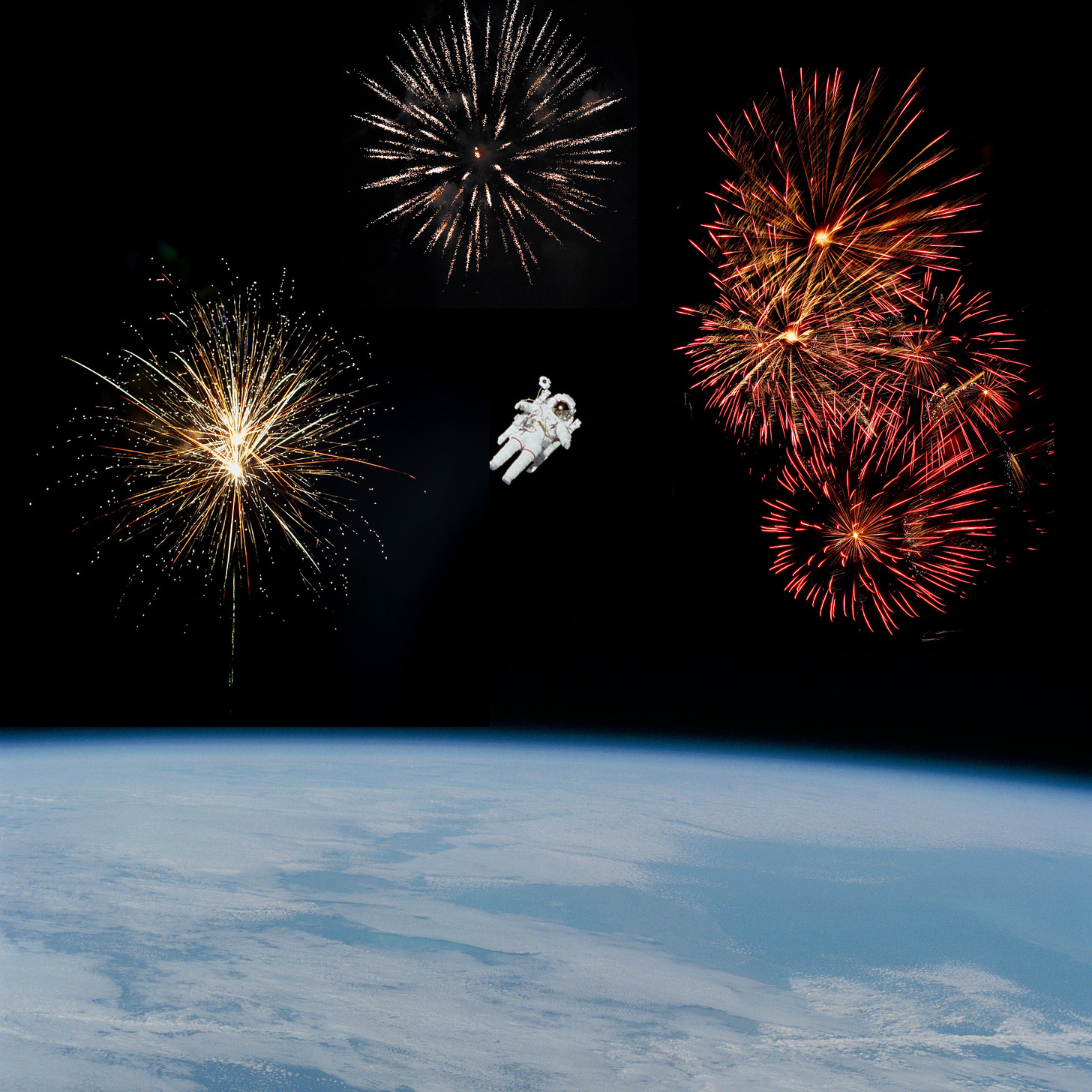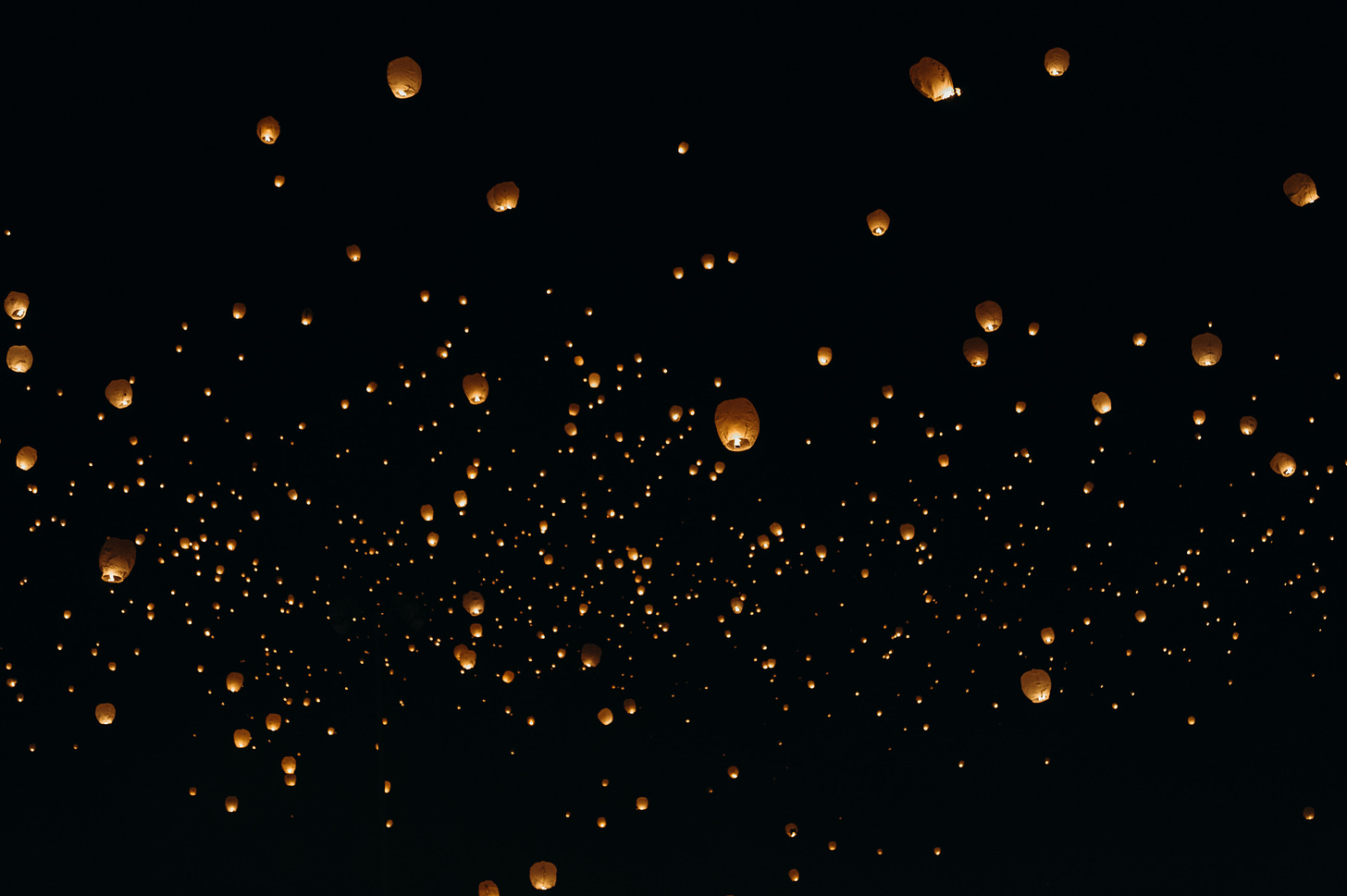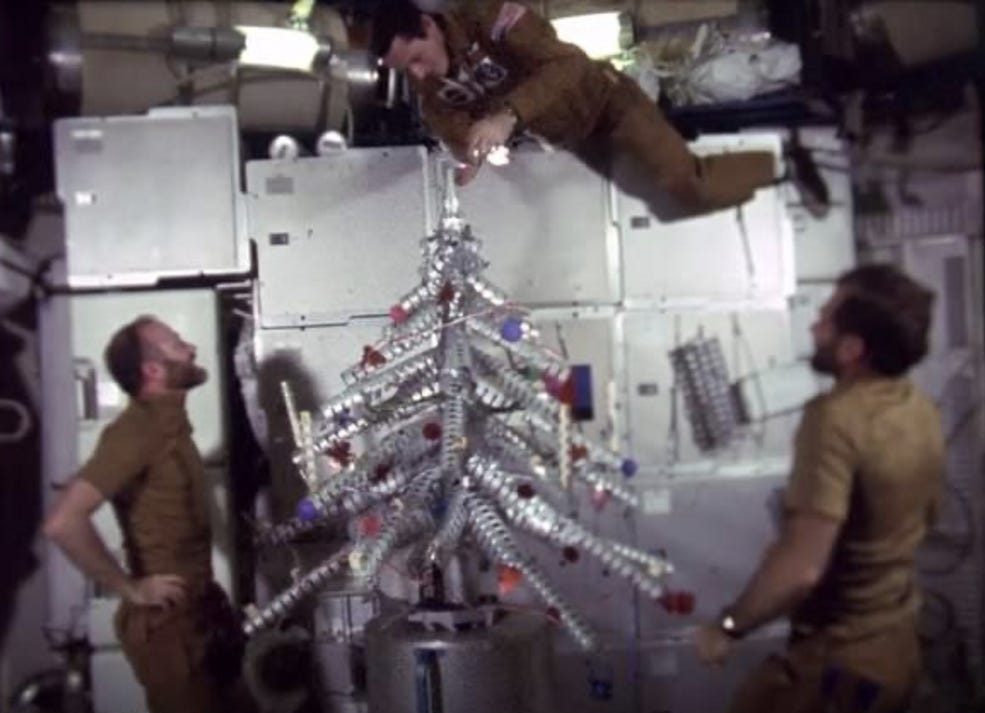
A couple of weeks ago, during Zoom Q&A session with a Colorado middle school, a student asked me: “Is there Christmas in space?” (I love talking to middle schoolers; they ask the best questions.) Panicking only slightly at the swerve from astrophysics into theology, I told her that Christmas happens wherever there are humans who celebrate Christmas. For now, that’s mostly on Earth, but someday, people might celebrate Christmas and other holidays on Mars, or the Moon, or on ships in the space in between.
Is that the correct answer according to Christian theologians? I dunno, you’ll have to ask my twin sister, who is an actual member of the clergy instead of a physicist facing a screen full of sixty curious middle schoolers. There are also a number of actual experts studying the intersection between religion and space— Deana Weibel and Mary-Jane Rubenstein are two whose work I highly recommend.
But I think it’s safe to say that of course there will be Christmas in space. Christmas, Rosh Hashanah, Eid al-Fitr, Diwali, the Spring Festival, New Year’s Day, birthdays, anniversaries, all of it. Space is only a “blank slate” until humans show up, after all. We bring along all of our vices and grudges and biases wherever we go, but also our religions and cultures and traditions and our love of parties with good food.

Just like the amazing potential of art in space, I look forward to seeing how we’ll adapt our traditions in the alien environment beyond Earth. I mean, just think about how many aspects of our holidays and religious practices depend on the physical characteristics of our planet!
There’s the timing of holidays, for one thing: When would you choose to celebrate an annual tradition like a birthday if you find yourself living somewhere that takes more than 365 days to orbit the Sun, like Mars? What if your holidays follow a lunar calendar, but you’re living without a moon overhead— or more than one?
Once you figure that out, it’s time to get down to the business of actually celebrating the holiday, and that leads to countless more challenges. How will you put up a Christmas tree in zero-g? Can you replicate your grandmother’s favorite recipe with the food supplies you’ve brought to a lunar base? What’s a safer, less-oxygen-consuming alternative to lighting an open flame for your menorah, birthday cake, or Festival of Lights? Is it possible to make fireworks that will explode in a Martian sky?
We’ll figure it out, of course. We always have. Humans have worked out how to celebrate our holidays in wartime, at sea, in the air, and in climates from the Sahara to Antarctica. Christmas is celebrated just as enthusiastically by snowbound Norwegians and midsummer Australians, after all. We’ll manage just fine in space.

In fact, we’ve already started to: Astronauts celebrate Christmas (both Western and Russian Orthodox), Hanukkah, and New Year’s on the International Space Station, and this year for the first time, astronauts celebrated Chinese New Year on the Tiangong station.
So we’ll keep celebrating all of these holidays as we move beyond Earth, and I’m sure we’ll invent some new ones along the way, too. Holidays are about connection, after all: with our ancestors, our gods, our own childhood memories; with the family we gather around us, and those far away. And you don’t need gravity for that.



